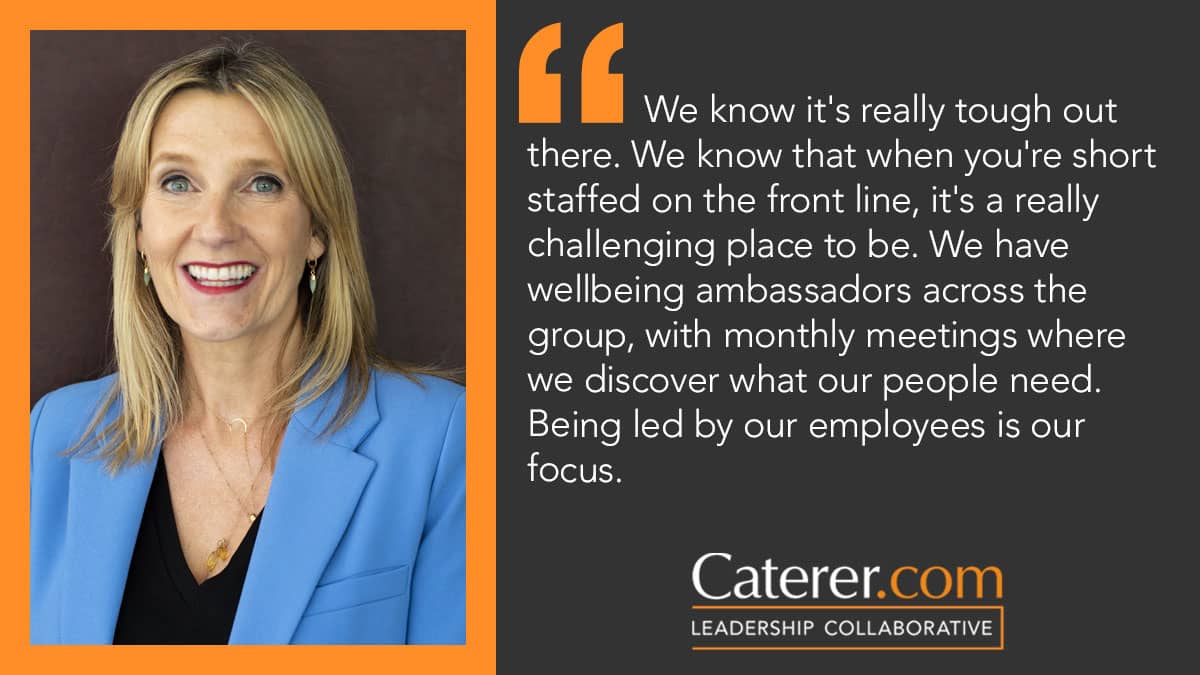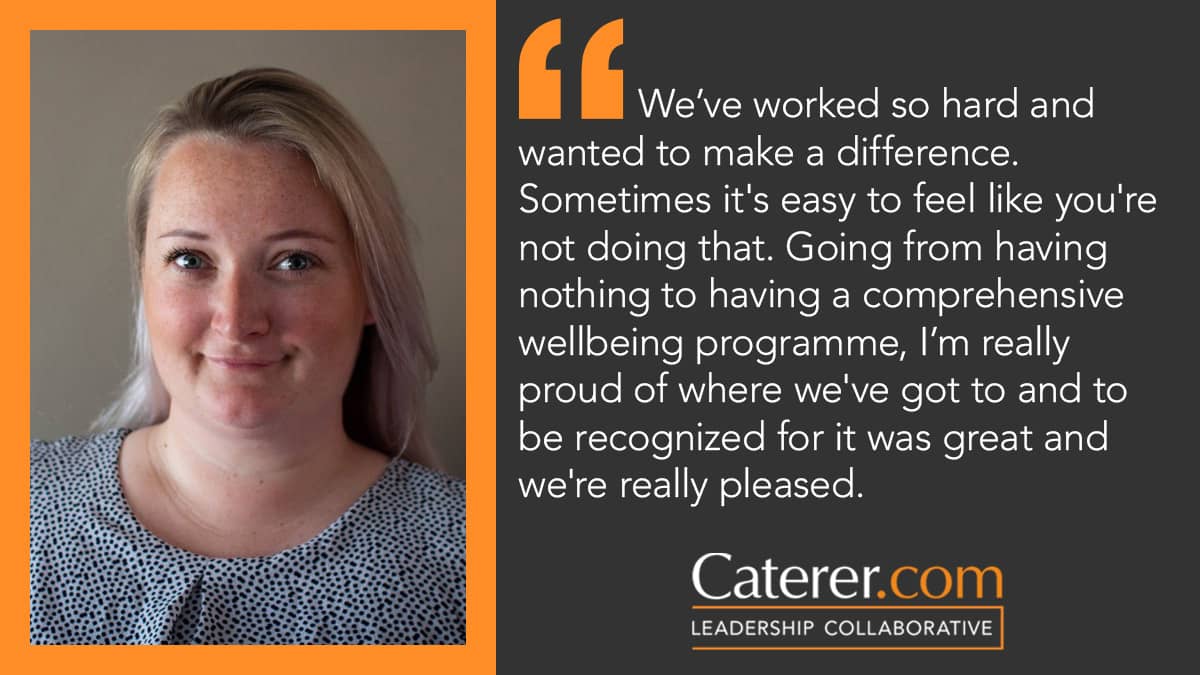Is workplace stress affecting your hospitality people?
According to research carried out by MIND, the mental health charity, one in four people in the UK will experience mental ill-health at some point in their life, whilst 1 in 6 people report experiencing a common mental health problem (like stress, anxiety and depression) in any given week.

Mental health is no longer the taboo subject it once was, with campaigns like ‘Mental Health Awareness Week’ creating a platform for open discussion. In recent years many employers have taken huge steps towards an open and inclusive approach to mental health and wellbeing, but what can you do to enhance awareness of your mental health policies in your workplace?
What is an employer’s duty of care?
Workplace stress can aggravate pre-existing conditions but can also be the cause of mental health issues, and hospitality employers have a duty of care to support employee wellbeing.
As an employer, you must take an employee’s mental health issues seriously. It’s a good idea to talk to your team regularly and check if they need any extra support at work and do all you reasonably can to support your employees’ health, safety and wellbeing.
Not all mental ill-health is the same and can happen suddenly because of a triggering event or build up over time. Common mental health issues include:
- stress, whilst this is not a medical condition, stress can have a serious impact on wellbeing
- Depression
- anxiety
Less common ones include:
- bipolar disorder
- schizophrenia
You should aim to create an environment where employees feel able to freely talk about mental health.
By supporting staff who are experiencing a mental health issue, and adjusting their role, you are helping them to work to the best of their ability and reduce the number of mental health sick days needed for their recovery.
HR mental health policy
Mental illness is classed as a disability under the Equality Act 2010. This safeguards employees from discrimination in the workplace. Your Human Resources policy should clearly spell out your approach to mental ill-health and show what steps you can take to support any member of staff experiencing a mental health issue.
If an employee has a pre-existing condition or is experiencing personal problems outside of work, this can affect their ability to carry out their role effectively. This is something that should be checked on an ongoing basis by your HR team.
The impact of mental ill-health on the workplace
In the year 2019/20 nearly 18 million working days were lost through stress, depression or anxiety,1 and employees are entitled to take time off for mental health issues in the same way as they are for physical illnesses.
Time off for stress
Time off for stress varies from case to case and if an employee is off work for longer than 7 days, they must supply a GP’s note
Symptoms of stress at work
Some of the most common signs of work-related stress to look for in your employees are:
- Increased sickness and absence
- Difficulty concentrating and remembering things
- A drop in work quality and productivity
- Working longer hours and through breaks
- Short temper and irritability
- Unusually quiet and withdrawn
- Lack of energy
Work-related stress
Some of the most common factors that contribute to workplace stress are:
- Long hours: a job in hospitality isn’t always 9–5. Employers should check in with team members to ensure they are getting enough downtime to recover from their shifts.
- Heavy workload: It’s easy to get caught up in the day-to-day and take on extra tasks. Line managers should keep an eye on their team’s workload to check they are not becoming overwhelmed.
- Unrealistic deadlines: multiple competing deadlines can cause a build-up of stress as employees try to complete them all.
- Organisational changes: Restructures, redundancies and management changes can all leave employees feeling insecure. Team leaders and managers need to communicate transparently with their teams to avoid ongoing fears around job security.
- Micromanagement: If your team leaders and managers check up on their staff continuously, employees can feel like they are not trusted, and this can cause anxiety about job performances.
- Team conflict: It really helps if your team members get along because if they don’t, it can cause anxiety and stress. Managers and leaders should look out for signs of friction within teams and work to resolve it as quickly as possible.
- Personal problems: Sometimes problems outside the workplace can affect an employee’s work and having a supportive management team and colleagues can help team members feel free to talk about their issues in a safe environment.
Supporting a team member who may be experiencing stress
If you think a team member is suffering from stress it’s important that their manager or team leader takes time to talk to them because without any dialogue, it’s impossible to know what is causing the stress and put in place measures to how to resolve it. Managers should also encourage employees to talk to them if they are feeling unwell.
If an employee tells their manager that they are feeling stressed, the manager should:
- move the conversation to a quiet, private space, in necessary. Somewhere they will not be disturbed
- thank the team member for feeling strong enough to speak openly about how they are feeling
- allow them as much time as they need to talk about what is causing them stress and be patient
- Listen actively and focus on what they say
- be open minded
- Use open questions to try to find out what is causing them stress at work
- Discuss and suggest possible solution
Sometimes stress can be caused by working relationships with their manager, or other team members. If this is the case then it may be helpful to involve a Human Resources professional, if your organisation has one, or a more senior manager and also allow the team member to have a supporter (such as a work colleague or trade union representative) at any meetings.
The benefits of monitoring and addressing stress in the workplace
There are huge benefits for employers in reducing work-related stress:
- Making staff healthier and happier at work
- Improving performance and making staff more productive
- Reducing absence levels
- Reducing workplace disputes
- Making the organisation more attractive to job seekers
The success of your business depends on the people you employ and the work they do. Championing mental wellbeing in the workplace can improve employee retention, teamwork, morale and productivity, resulting in a more profitable business.
Paying attention to your company’s mental health policy is in the best interest of both your people and your business.
Resources
To effectively support your employees’ mental wellbeing, there are several resources available:
- Acas – Mental Health in the Workplace
- Mind – Mental Health at Work
- Samaritans – Workplace Mental Health Support
- Gov.org – Mental Health and Work
- Institute for Employment Studies – Health, Work and Wellbeing
You may also like to listen to

Caterer.com People Awards winner, Food Service provider, Compass Group shone with their entry in the Wellbeing category. At a time when circumstances were difficult throughout the hospitality industry, Compass Group understood that the well-being of their people was of paramount importance. This is as much relevant today as it was then.

Employee Wellbeing has become a crucial part of recruitment strategy within the past two years. As hospitality workers suffered for a variety of reasons during the pandemic, HR departments had to adapt by discovering the needs of their employees and acting on that information in an empathetic way.

In a recent survey, 84% of hospitality professionals questioned had experienced some kind of mental health issue within their career and 46% would not feel comfortable talking about their health concerns with their colleagues.